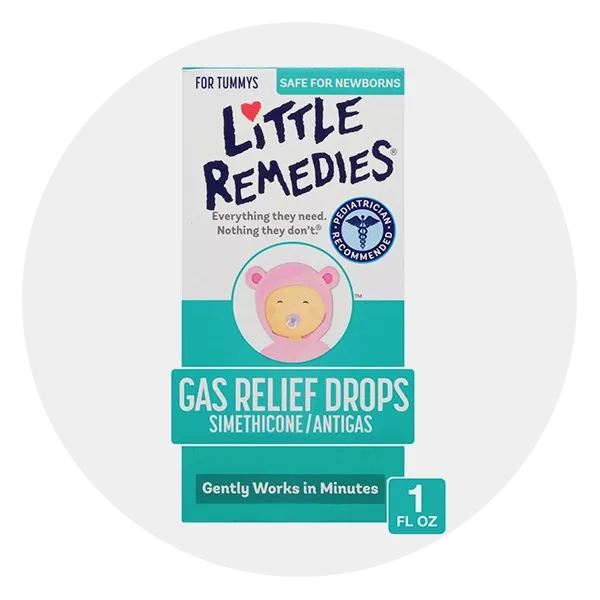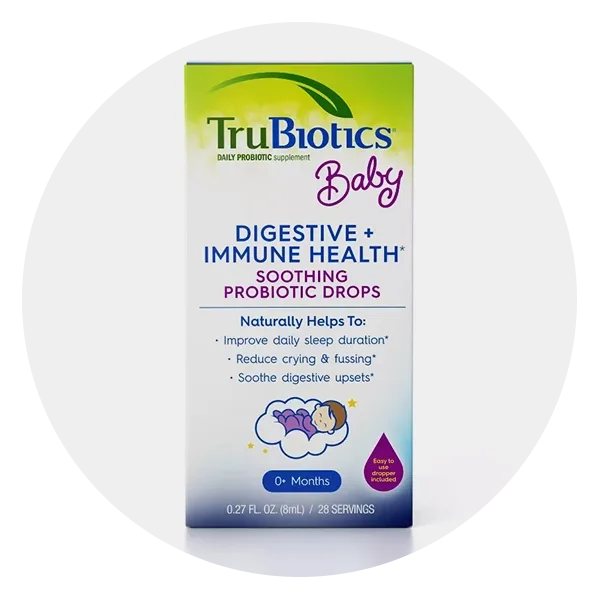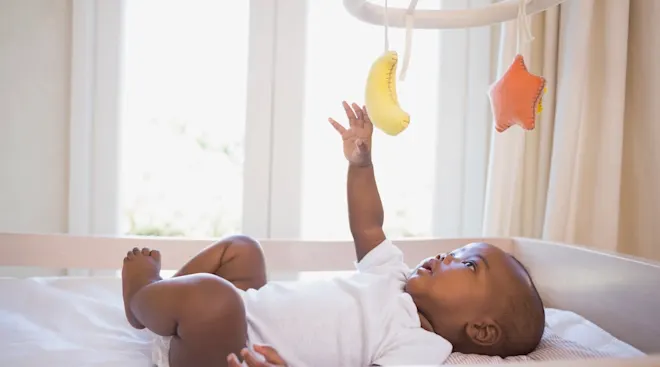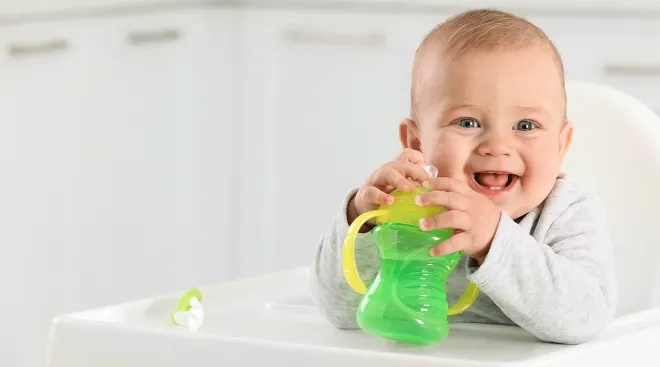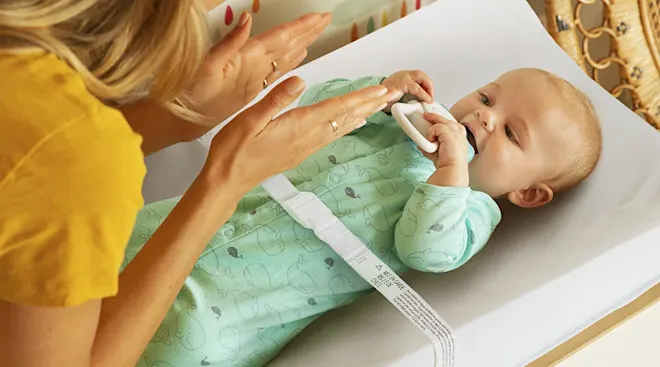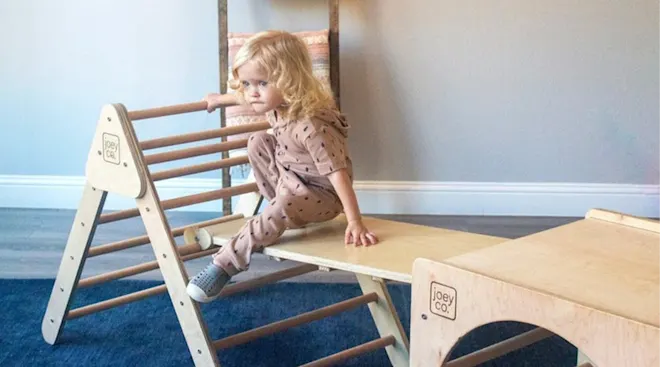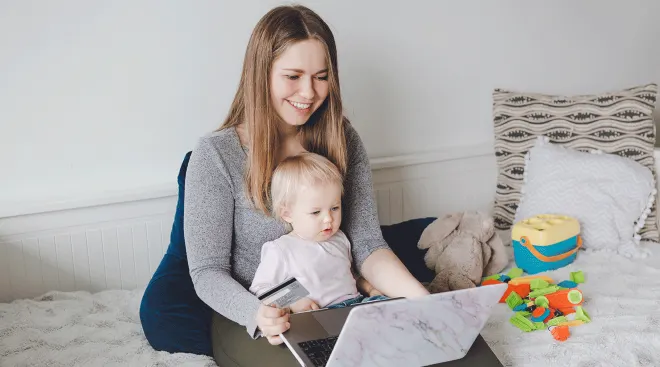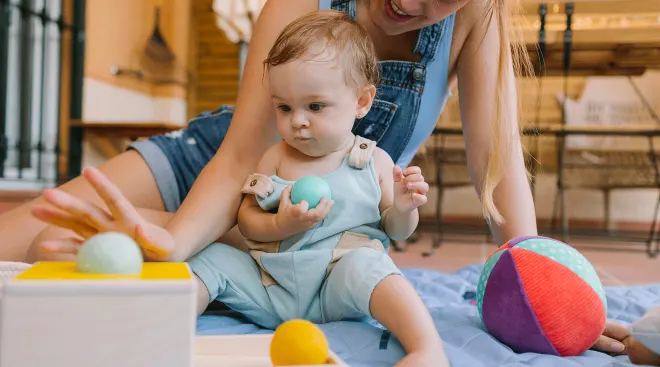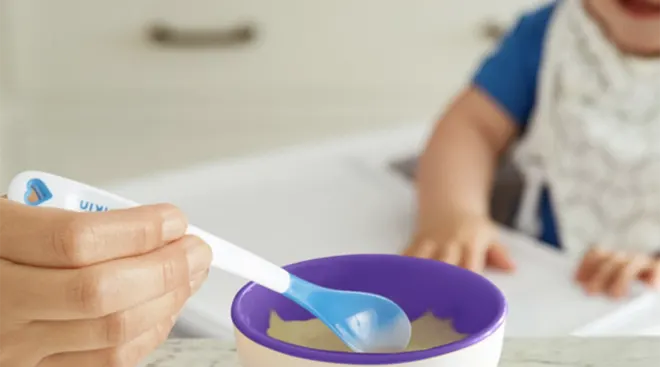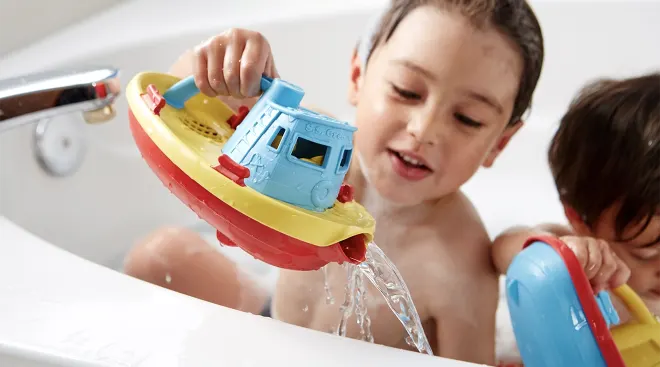Can Baby Gas Drops Offer Your Infant Relief?
We all know the feeling—bloated, gassy and downright uncomfortable. Unfortunately, painful gas occurs in babies and adults alike. Gas-related issues tend to start for your little one during the newborn stage and are primarily a result of baby swallowing too much air during feedings or food intolerances. While there’s no straight up cure for gas, there are steps you can take to reduce it. In a pinch, gas drops for babies can help ease the worst symptoms. Curious to learn more? Here’s what you need to know about using baby gas drops.
Baby gas drops are an over-the-counter medication designed to alleviate painful symptoms associated with having too much gas in the stomach and intestines. According to Alexis Philips, DO, a pediatrician at Memorial Hermann Medical Group Pediatrics in Atascocita, Texas, gas drops contain simethicone, an ingredient that helps break up gas bubbles in baby’s tummy and makes gas easier to pass. Infant gas drops can be administered orally or mixed with formula or breast milk.
When baby is uncomfortable, you’re willing to try it all, so what’s the difference between gas drops and gripe water? While gas drops are classified as a medication, gripe water is an alternative option that contains sodium bicarbonate and herbal ingredients such as ginger and fennel, which work together to calm hiccups, soothe upset stomachs and help ease symptoms of colic. Both treatments are administered orally (by a dropper or syringe) and are thought to help ease stomach discomfort and make it easier for babies to pass gas.
So which option should you try first? Every child is different, and you may find both treatments work equally well. But if neither option works, don’t despair. According to Lauren Crosby, MD, a pediatrician and spokesperson for the American Academy of Pediatrics (AAP), simple measures, such as regular burping, ensuring baby has a proper latch and feeding position, bicycling baby’s legs and gentle massage can all help to break up gas. It can also be a good idea to use anti-colic bottles or vented nipples to reduce the amount of air baby swallows during feeding sessions.
In general, gas drops for babies are safe for all ages, but Crosby doesn’t recommend trying them before baby hits the two-week mark. “If a brand new baby is fussy or seems to have gas, it might not be gas. The baby might not have enough to eat or have some other issue,” says Crosby. Rather than reaching for a bottle of medication, parents should take the time to learn baby’s cues and aim to soothe them naturally. Failing that, parents should check in with their child’s pediatrician before administering gas drops. And remember to always read the instructions to determine the correct dosage.
Gas drops can be used up to 12 times a day, if necessary, and Crosby advises parents to administer them at feeding time. Gas drops for babies take up to 30 minutes to kick in—and, while they won’t work miracles for all babies, a couple of drops certainly won’t hurt. That said, it’s important to read the instructions and check in with your pediatrician before doling out baby gas drops for the first time.
If you’ve exhausted all other avenues, and been given the green light by your pediatrician, it may be time to try infant gas drops. Here, a few tried-and-tested options to consider:
Top-rated gas drops for babies
First up on our list of gas drops for babies is this option from Little Remedies. This top-rated product has thousands of five-star reviews on Amazon, making it a solid choice for new parents. It contains the bubble-bursting ingredient simethicone that gently relieves tummy discomfort in a matter of minutes. Plus, it has a pleasant berry flavor and is free from nasties like alcohol, artificial dyes and parabens.
Pediatrician-approved gas drops for babies
Mylicon is a pediatrician recommended brand that has been providing safe, effective relief from infant gas for generations. The gas drops gently break up air bubbles and are safe enough for newborns and older infants. Better yet, the drops are free from dyes, alcohol, artificial flavors and gluten.
Baby gas drops with easy-dose syringe
Mommy’s Bliss gas drops for babies are vegan, allergan-free and gentle on baby’s sensitive stomach. The active ingredient simethicone provides fast-acting relief from gas and the natural ginger flavor won’t leave baby with a bad taste in their mouth. The pest part? These infant gas drops come with a syringe to help you give the right dose every time.
Best probiotic drops for babies
Of course, simethicone-based infant gas drops aren’t the only option to treat fussiness and tummy discomfort. For parents that want to take a different course of action, Crosby recommends probiotics such as TruBiotics Baby Drops. Probiotic supplements support baby's digestive and immune health by increasing beneficial bifidobacteria in the gut—the most beneficial type of bacteria in babies. Aside from these general health benefits, TruBiotics work to soothe infants’ upset stomachs, reduce fussiness and crying and support regularity.
About the experts:
Lauren Crosby, MD, is a board-certified pediatrician and an official spokesperson for the AAP. She earned her medical degree from the UCLA School of Medicine, and previously served as chief resident at Cedars-Sinai Medical Center in Los Angeles.
Alexis Phillips, DO, is a pediatrician at Memorial Hermann Medical Group Pediatrics in Atascocita, Texas. She earned her medical degree at Ohio University College of Osteopathic Medicine in Athens.
Please note: The Bump and the materials and information it contains are not intended to, and do not constitute, medical or other health advice or diagnosis and should not be used as such. You should always consult with a qualified physician or health professional about your specific circumstances.
Plus, more from The Bump:
Navigate forward to interact with the calendar and select a date. Press the question mark key to get the keyboard shortcuts for changing dates.


































